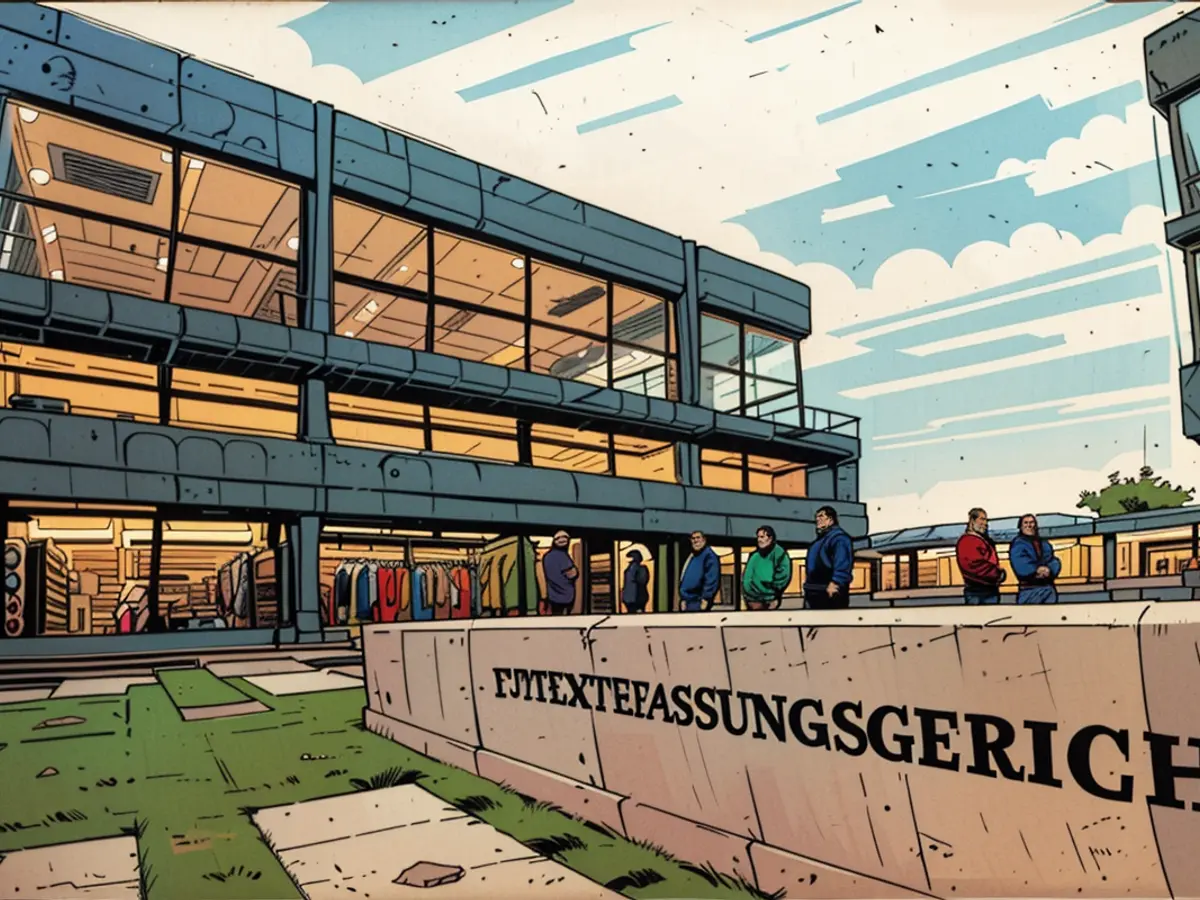The Constitutional Court should be better protected with regard to amendments of the Basic Law
The Federal Constitutional Court is a shield for fundamental rights," explained Justice Minister Marco Buschmann (FDP) during the presentation. "But its own shield needs more resistance."
In the Basic Law, these structures, such as the status of the court, the division into two senates, and the number of 16 judges, are to be anchored. Additionally, it is to be specified that judges can only serve a maximum of twelve years and up to an age limit of 68.
These structures are not yet anchored in the Basic Law. They can therefore be changed with a simple majority in the Bundestag. However, if they are part of the Basic Law, this is no longer so simple: For Basic Law amendments, a two-thirds majority in the Bundestag and subsequently also in the Bundesrat is required.
Already anchored in the Basic Law is that judges are elected half from the Bundestag and half from the Bundesrat - and each with a two-thirds majority. A political force, for example, which has more than one third of the seats in the Bundestag, could block the election.
Such a "not entirely remote threat," as the Green politician Konstantin von Notz said, want the traffic light parties and the Union to prevent. Therefore, a so-called opening clause is to be inserted into the Basic Law: If one of the parliaments fails to fill a vacant judge's position in a timely manner, the other could exercise the right to vote. The court would thus be "always decisive and actionable," emphasized the SPD deputy Johannes Fechner.
Buschmann and SPD, Green, and FDP experts had been negotiating about the changes for months. The background is not only the developments of a hollowing out of the rule of law in other countries but also the strengthening of the AfD, which the domestic intelligence service in some parts classifies as reliably right-wing extremist.
All proposals on the table have been examined, said the deputy chairwoman of the Union faction, Andrea Lindholz (CSU). The conducted talks were described as "good" and "constructive." Her Union colleague Ansgar Heveling (CDU) spoke of a "good day for our Basic Law."
A legislative proposal is therefore to be submitted "promptly." The entry into force of the amendments is still planned for this legislative period.
"Our rule of law must not be sabotaged from within," declared Interior Minister Nancy Faeser (SPD). "When authoritarian forces attack democracy, the justice system is often their first target." The now planned securing of the Federal Constitutional Court is therefore necessary.
The AfD emphasized the independence and effectiveness of the Federal Constitutional Court as important for them, but has a different focus. The goal must be the "depoliticization of the justice system," for example in the judicial election process, explained the deputy AfD federal spokesman Stephan Brandner. "That no steps are being taken by the entire grand coalition on this important issue is shameful."
Lawyers' associations welcomed the reform plans of "Traffic Light" and Union: The German Lawyers' Association (DAV) spoke of "important and wise proposals," with which judges can be protected from political interference. DAV Vice President Ulrich Karpenstein praised in particular the mechanism for resolving blocking of judge elections.
The examples of Poland and Hungary have alarmingly shown how quickly supposedly stable rule-of-law states can tip over, stated the CEO of the German Judges Association (DRB), Sven Rebehn. The announced safeguards could "however only be a first step". Initiatives are also necessary in the federal states. Therefore, the directive power of justice ministers over prosecution offices is "poison for the trust of people in an independent prosecution".
- The FDP's Marco Buschmann, serving as Justice Minister, highlighted the role of the Federal Constitutional Court as a guardian of fundamental rights.
- These structures related to the Federal Constitutional Court, such as the court's status, division, and judge limits, are yet to be fully anchored in the Basic Law.
- The SPD deputy Johannes Fechner stressed that the court should always be decisive and actionable, which could be achieved through a proposed opening clause.
- Konstantin von Notz, a Green politician, warned of a potential "not entirely remote threat" to block judge elections, motivating the need for this proposed opening clause.
- Negotiations about these changes, involving Buschmann, SPD, Green, and FDP experts, had been ongoing for months due to concerns about rule of law erosion and the AfD's influence.
- The AfD's deputy spokesman Stephan Brandner focused on depoliticizing the justice system, particularly during the judicial election process, despite welcoming the court's independence and effectiveness.
- The German Judges Association (DRB) CEO Sven Rebehn highlighted the importance of the proposed changes, representing a first step in protecting the Federal Constitutional Court, but also emphasized the need for further initiatives within the federal states.







